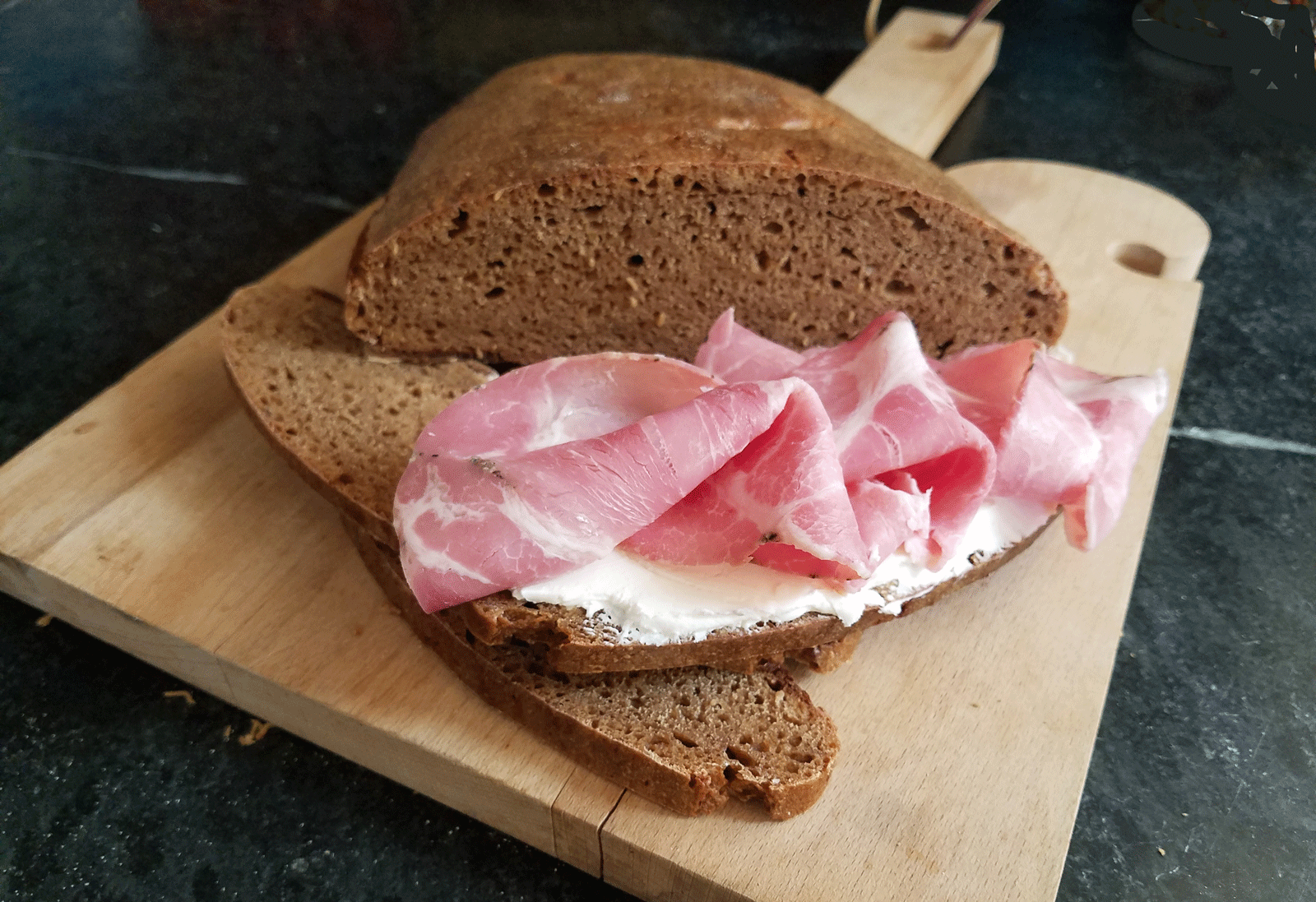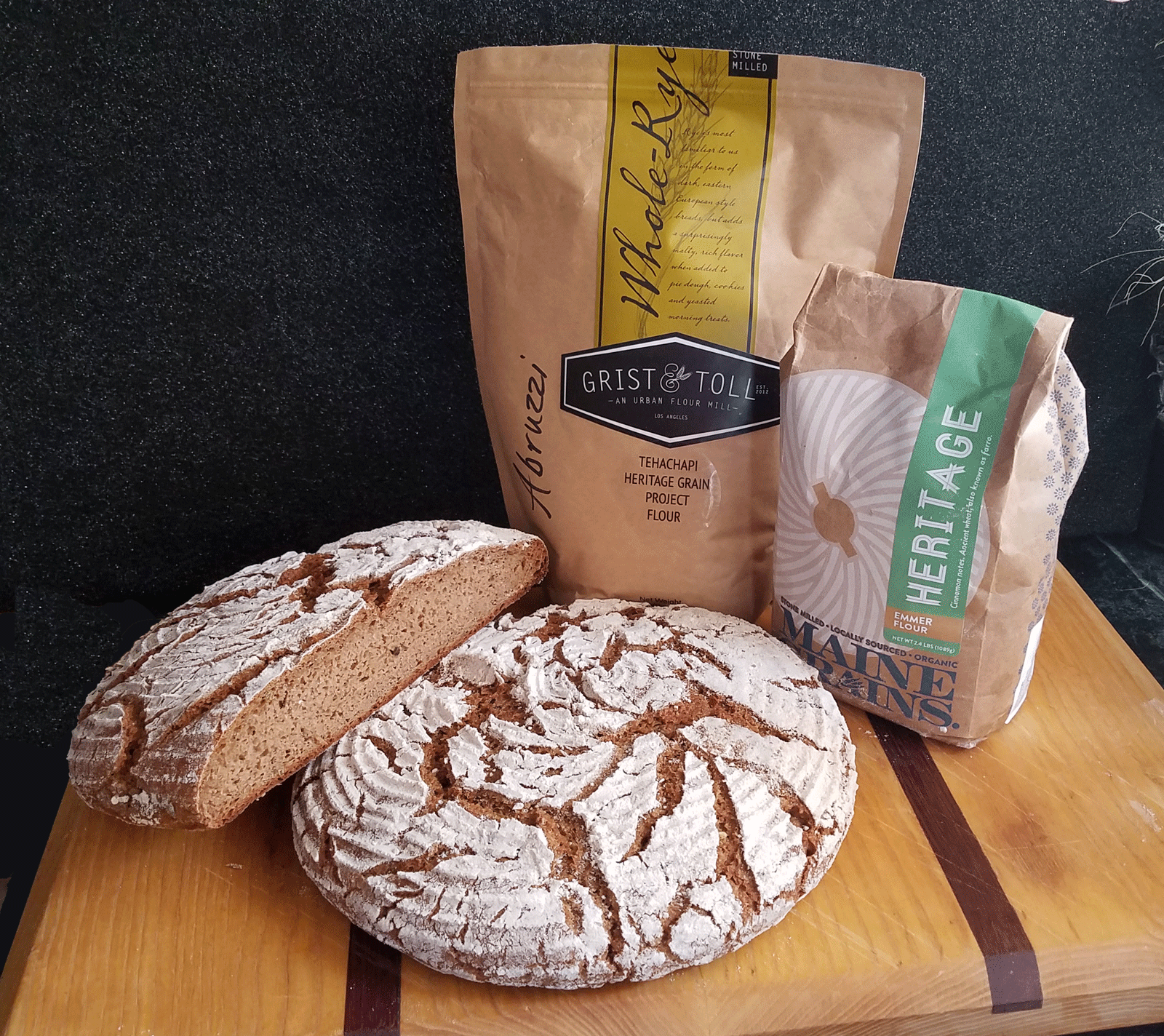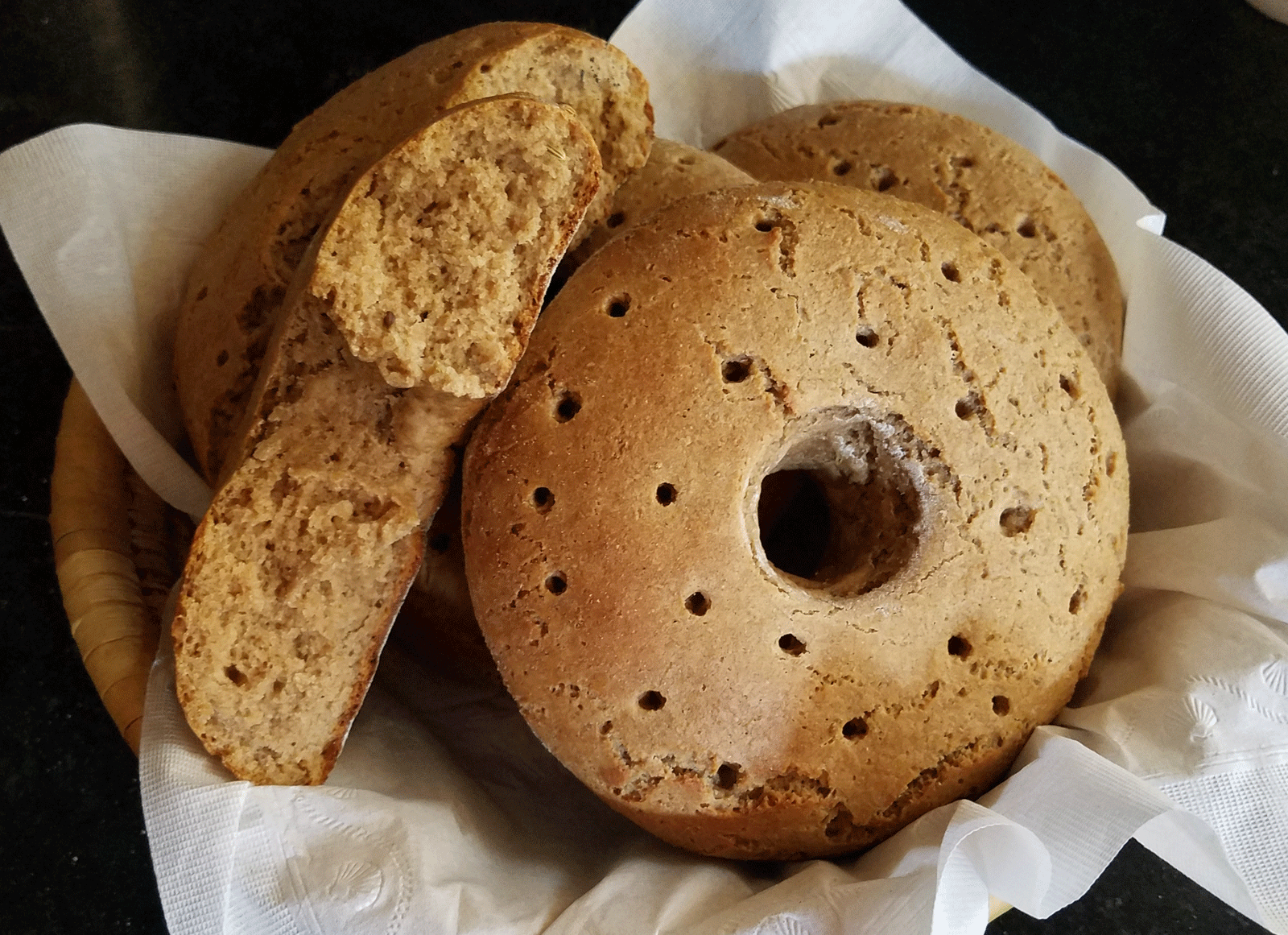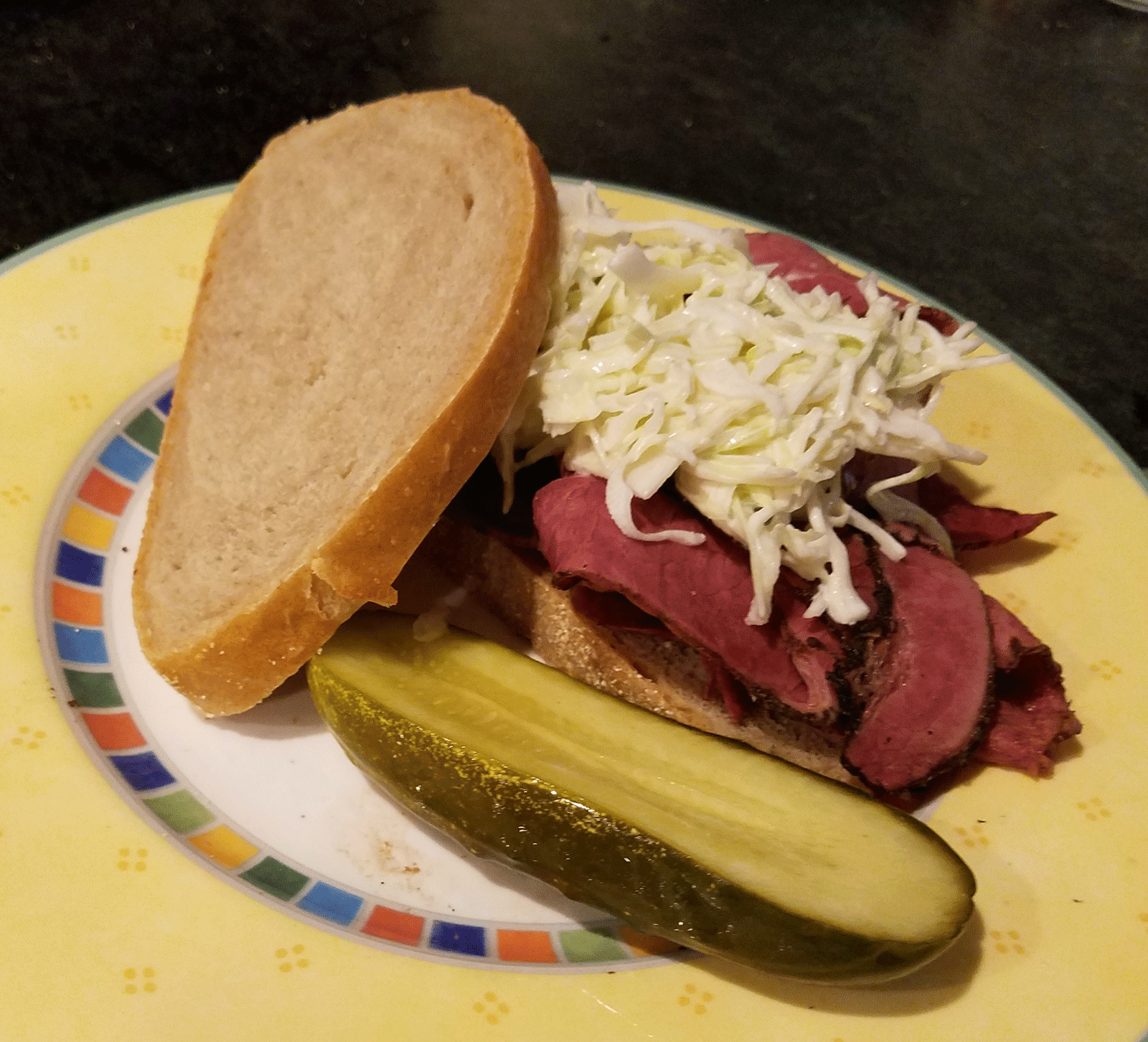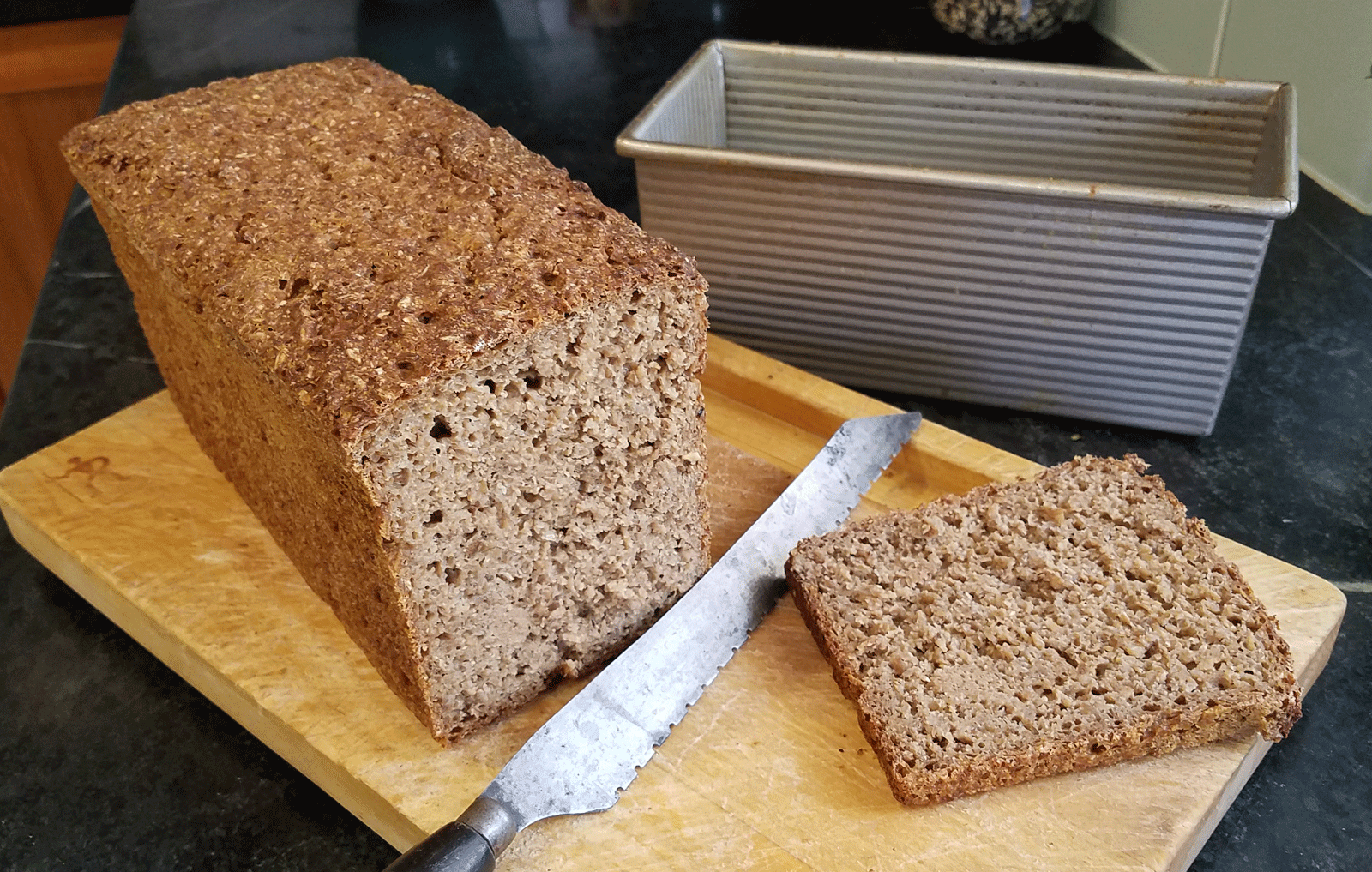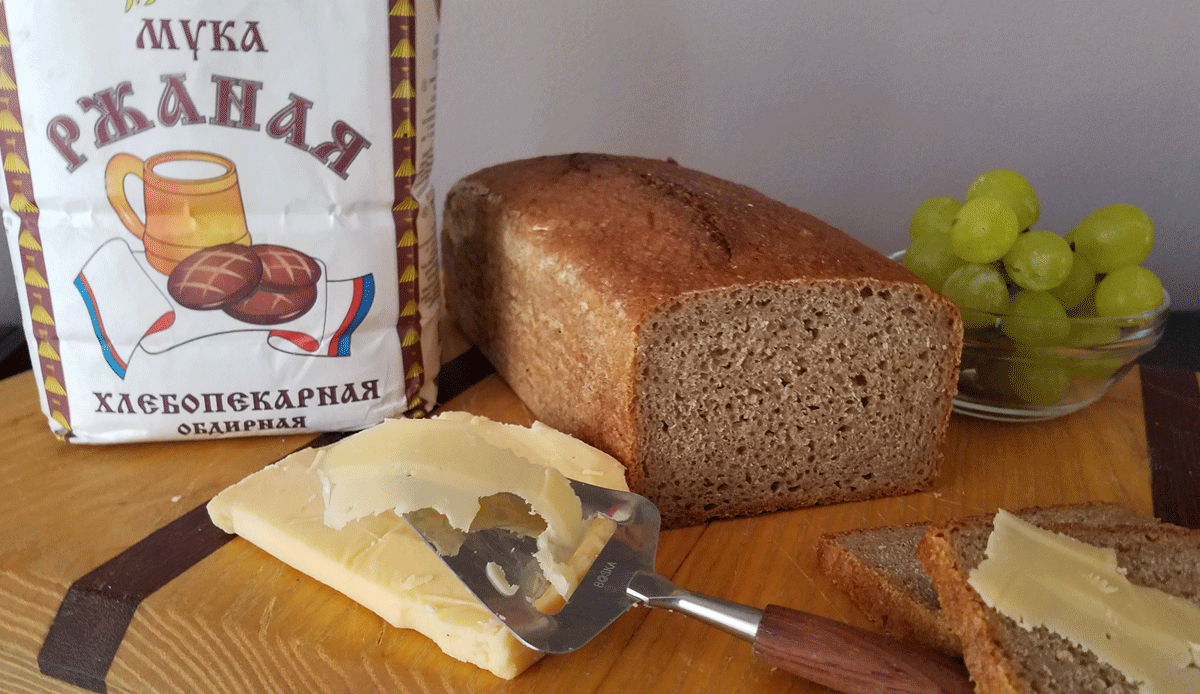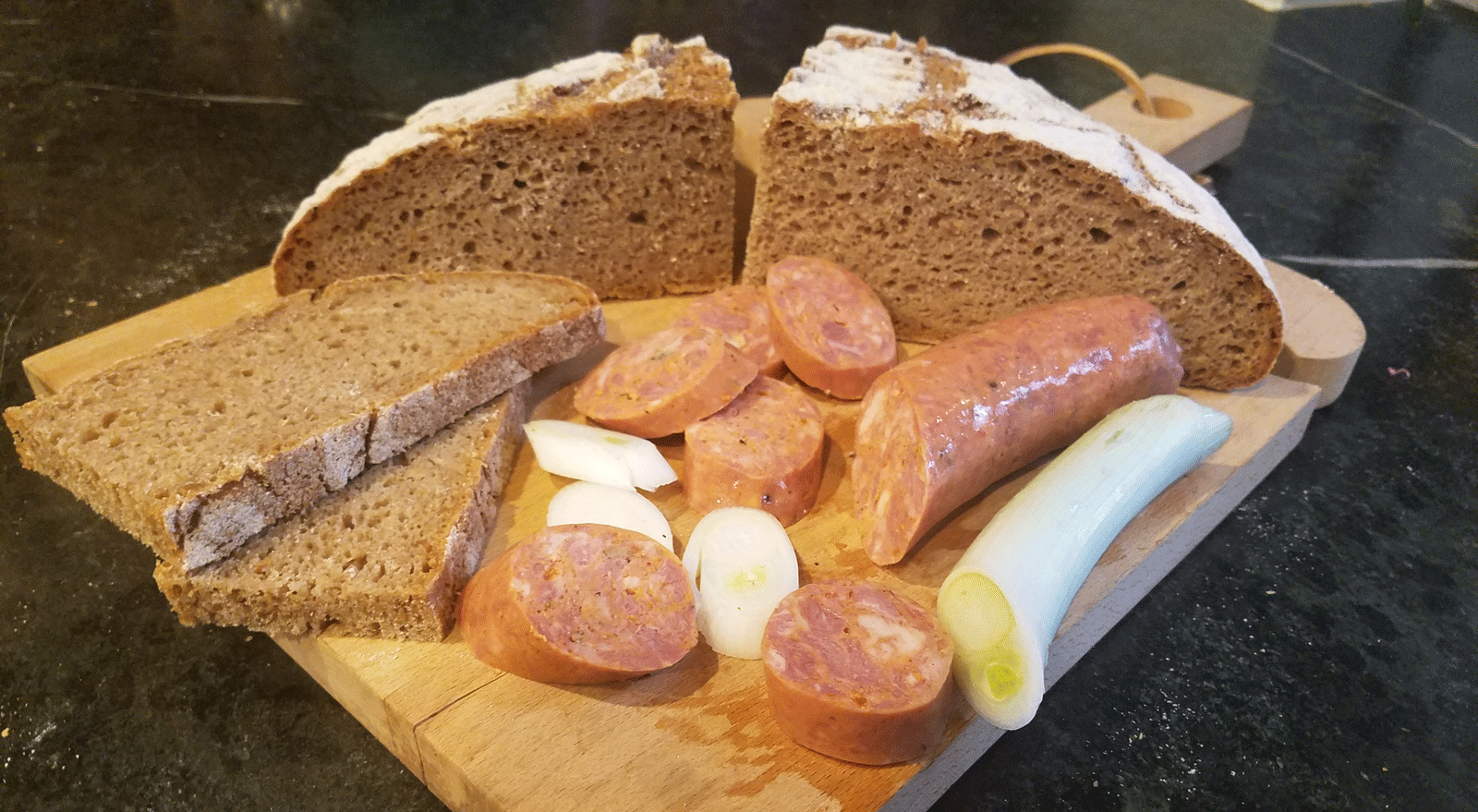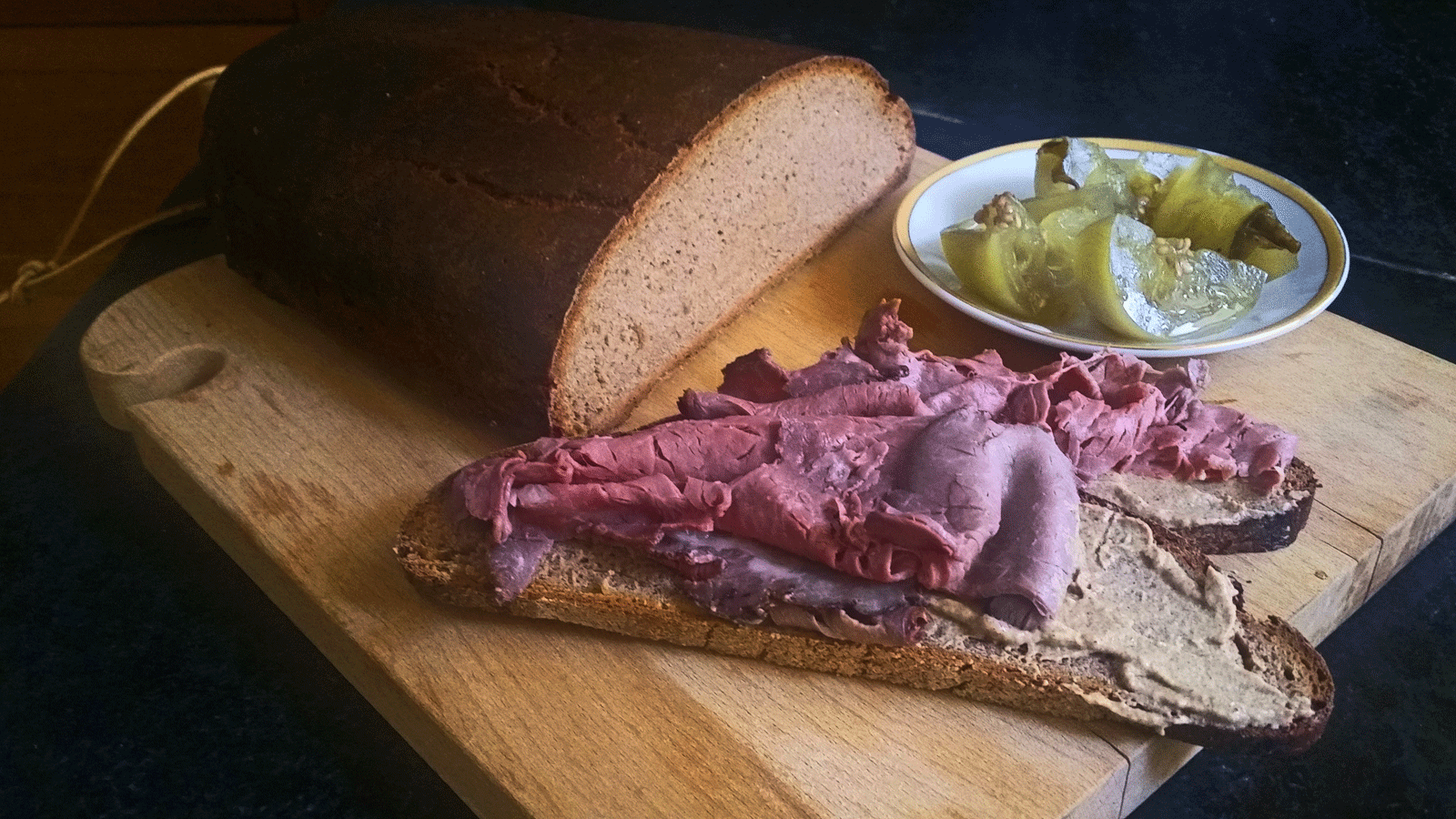by John Melngailis – Partner, Black Rooster Food, LLC
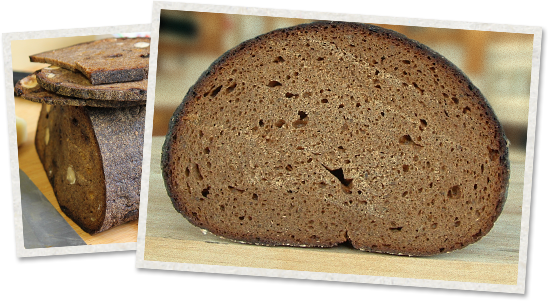
NOTE: I first met John Melngailis at Bread Furst, James Beard winner Mark Furstenburg’s Washington DC bakery. Mark had been kind enough to arrange for me to appear at the bakery to publicize The Rye Baker, and invited John, whose love of his native Latvian rye breads prompted him to found Black Rooster Food and start baking them commercially. Needless to say, John and I hit it off immediately, spending a good part of the morning talking about the marvels of Baltic rye. He was also kind enough to bring me a loaf of each of his breads — dense, sweet-sour rupjmaize, and a triangular loaf of his fruit-and-nut holiday bread, both of which were extraordinary. So when John sent me this essay on his relationship with the bread he loves, I simply had to share; it’s a fascinating read.

